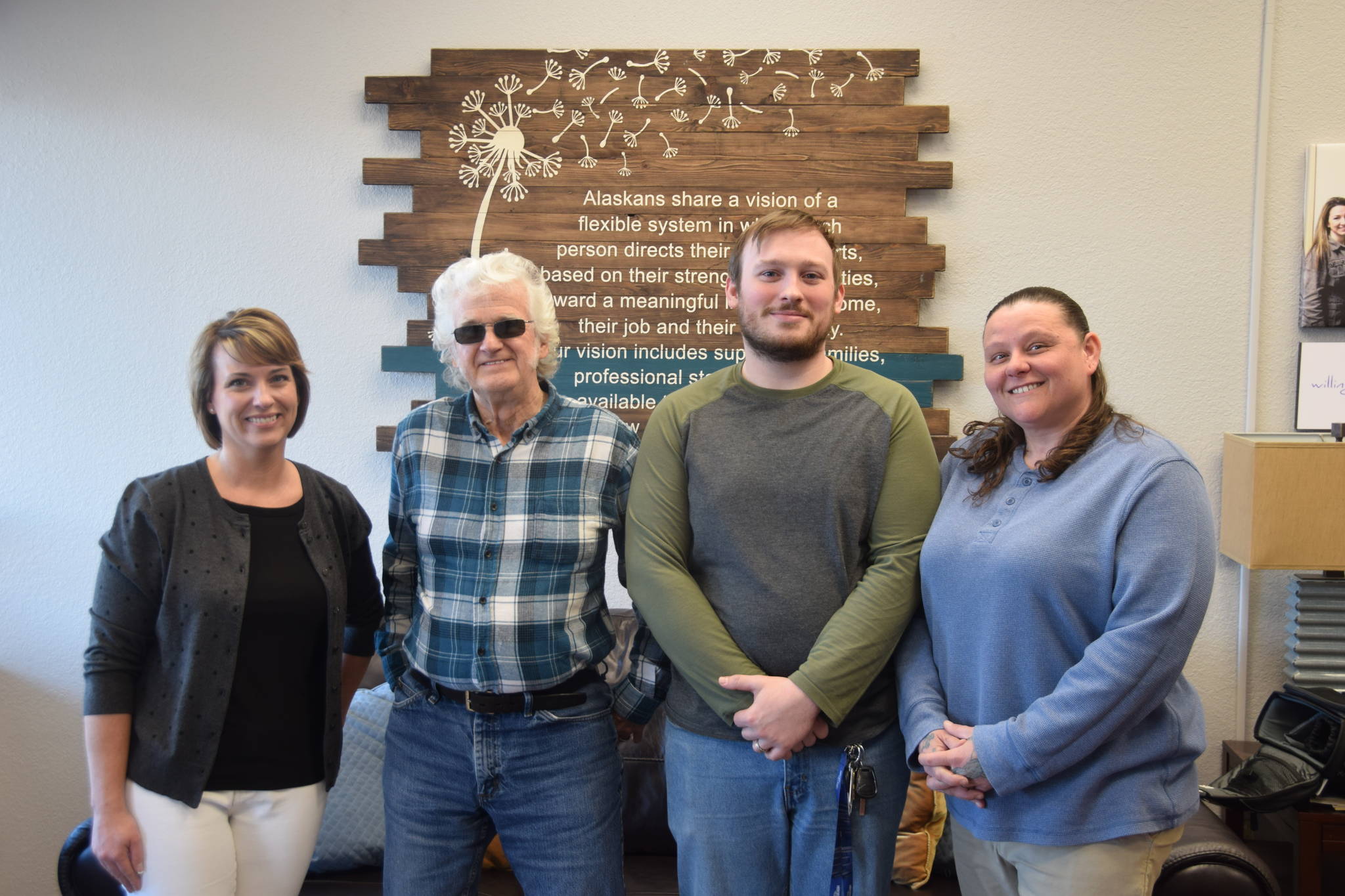A peninsula community service organization recently received a $50,000 grant to support training and to provide resources to its employment assistance program.
The Alaska Mental Health Trust (AMHT) awarded the grant to Frontier Community Services, which provides assistance in seeking employment for those who may struggle to find a job on their own. The grant will provide Frontier’s employment specialists with training in the Individual Placement and Support (IPS) model, as well as the resources to incorporate the IPS model into their current programs.
Frontier’s Executive Director Amanda Faulkner said that AMHT awarded the grant to Frontier partly to test the effectiveness of incorporating the IPS model into employment assistance programs, and said that its success could lead to other agencies around the state being awarded similar grants.
“They always partner with us on new pilots and are always open to invest in our ideas on how to make things better or bring new things to our community,” Faulkner said.
The IPS model is geared toward people with serious mental illnesses and those dealing with substance abuse. According to the IPS website, the model stresses gainful employment in a position that appeals to the individual based on their strengths as well as their particular disability or mental health issue. Frontier’s Disability Employment Specialist Ron Paul said that an individualized approach is key when assisting people who struggle with issues related to mental health, substance abuse or developmental disabilities.
“We match the client with a proper employment setting,” Paul said. “We never set anyone up for failure, so we always make sure people are capable and willing to perform the duties of any given job.” Paul said that Frontier currently has a job placement rate of about 80 percent for its clients, and he hopes that number will improve with their use of the IPS model.
Paul also said that the success of their employment services are thanks in large part to local employers being willing to hire people from an often stigmatized population. “A lot of the employers are very willing to work with our clients and give them an opportunity,” said Paul. “These individuals need that assurance that somebody cares enough to give them a chance, and these employers are fantastic for that.”
Faulkner said that their target population with this program will be those in recovery for substance abuse. “The benefits of having a job while in recovery are a hundred-fold. It increases self-esteem because they want to work, and it pulls them out of negative behavior.”
Paul and six other employment specialists from Frontier will attend a seven-week training course starting on April 29 and ending in June. This course will familiarize Paul and the others with the IPS model. Faulkner said that after they complete their training they will discuss with the rest of the Frontier team how to best implement the model into the agencies already existing programs.
One of the Employment Specialists, Nikki Marcano, said on Monday that she looks forward to the seven-week training program so that she can gain new skills for her position. “I’m excited to actually learn and take the training, and get the tools that I need to help,” said Marcano. She also said that the grant will allow Frontier to take more referrals from other agencies on the peninsula and work more collaboratively with them, such as PCHS or Freedom House.
“It’s a pretty exciting grant. It opens up a whole bunch of new doors.” Marcano said.
Frontier Community Services currently offers a variety of employment and independent living assistance for individuals and families. They are located in the Copper Center on Kalifornsky Beach Road, and their phone number is 907-262-6331.

